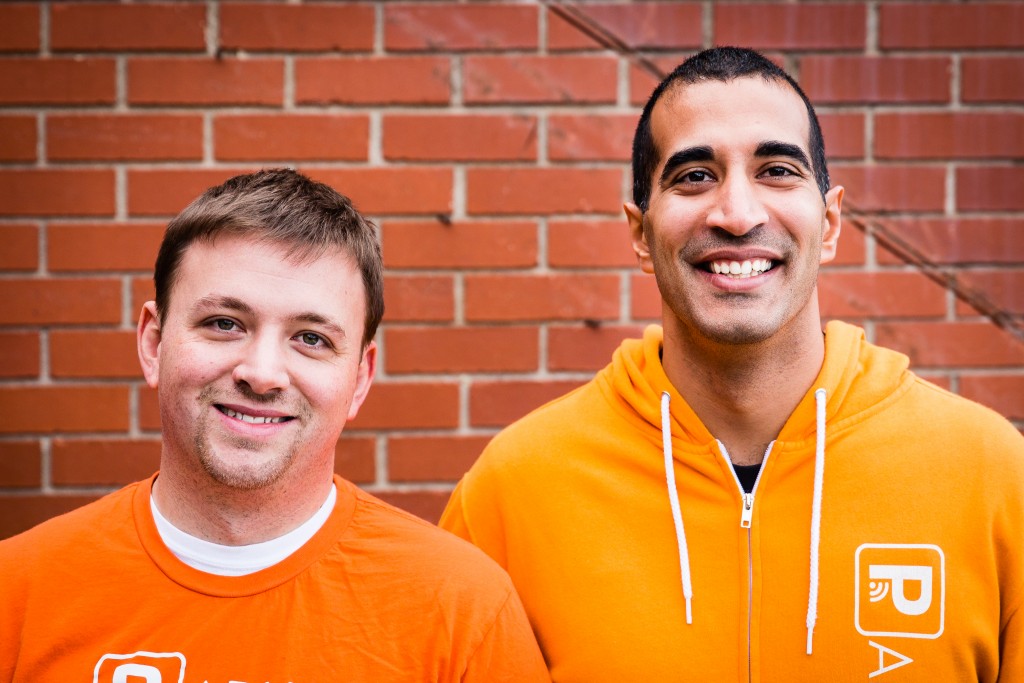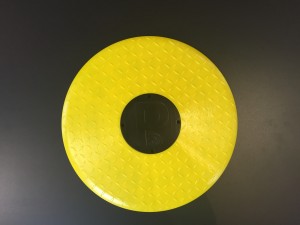Parkifi isn’t tapping the brakes yet.
The LoDo-based startup is moving to bigger space in Larimer Square and just filled the tank with another $2 million, according to a filing with the SEC on Aug. 2.
Parkifi, which sells sensors that track when and how long a parking space has been occupied – already sells sensors and software subscriptions to the owners of private parking lots and garages. Co-founder Ryan Sullivan, 31, said this latest investment will help launch a product for drivers to find public parking, on the street or in surface lots and garages.
“Our big initiative for the remainder of the year is to launch our mobile consumer experience here in Denver, which allows consumers to find parking spaces,” he said. “We’re working hard to make sure the city and citizens here can enjoy that experience as soon and as seamlessly as possible.”
Sullivan said the capital raise is an extension of the company’s Series A funding round. The investor is Quanta Computing, one of the manufacturers that makes Parkifi’s sensors.
According to the SEC filing on Aug. 2, Parkifi could raise as much as $4 million. Previous filings show Parkifi has raised at least $13.4 million since it got rolling in 2014.
Parkifi sells hockey puck-sized sensors powered by a battery, which can tell when a car pulls in and when it backs out. The sensors then send that information to a database.
Sullivan said the startup would like to add another 10,000 parking spots in downtown Denver within the next year. It also has a short list of other cities where it would like to start tracking public parking, he said.
Parkifi’s sensors are used in private parking lots in nine states, Sullivan said. Customers can purchase sensors for each spot or pay a monthly subscription fee to access Parkifi’s database showing which spots are free and occupied.
Sullivan declined to quote prices, saying the cost-per-sensor varies widely depending on how many spots a customer is tracking, and said 2016 is the company’s first year generating revenue.
Sullivan told BusinessDen in 2015 that Parkifi would have sensors tracking 10,000 spots by year-end.
Competitors include Swarco, an electronics manufacturer that makes a sensor that must be plugged into external electricity, and Frogparking, which also makes a battery-powered sensor, Sullivan said. But he added that both products are more expensive than Parkifi’s services.
Sullivan started Parkifi with Rishi Malik in 2014. They soon will cruise back into the same 15,000-square-foot office where they met in 2012, while working for the email marketing startup SendGrid.
Parkifi isn’t tapping the brakes yet.
The LoDo-based startup is moving to bigger space in Larimer Square and just filled the tank with another $2 million, according to a filing with the SEC on Aug. 2.
Parkifi, which sells sensors that track when and how long a parking space has been occupied – already sells sensors and software subscriptions to the owners of private parking lots and garages. Co-founder Ryan Sullivan, 31, said this latest investment will help launch a product for drivers to find public parking, on the street or in surface lots and garages.
“Our big initiative for the remainder of the year is to launch our mobile consumer experience here in Denver, which allows consumers to find parking spaces,” he said. “We’re working hard to make sure the city and citizens here can enjoy that experience as soon and as seamlessly as possible.”
Sullivan said the capital raise is an extension of the company’s Series A funding round. The investor is Quanta Computing, one of the manufacturers that makes Parkifi’s sensors.
According to the SEC filing on Aug. 2, Parkifi could raise as much as $4 million. Previous filings show Parkifi has raised at least $13.4 million since it got rolling in 2014.
Parkifi sells hockey puck-sized sensors powered by a battery, which can tell when a car pulls in and when it backs out. The sensors then send that information to a database.
Sullivan said the startup would like to add another 10,000 parking spots in downtown Denver within the next year. It also has a short list of other cities where it would like to start tracking public parking, he said.
Parkifi’s sensors are used in private parking lots in nine states, Sullivan said. Customers can purchase sensors for each spot or pay a monthly subscription fee to access Parkifi’s database showing which spots are free and occupied.
Sullivan declined to quote prices, saying the cost-per-sensor varies widely depending on how many spots a customer is tracking, and said 2016 is the company’s first year generating revenue.
Sullivan told BusinessDen in 2015 that Parkifi would have sensors tracking 10,000 spots by year-end.
Competitors include Swarco, an electronics manufacturer that makes a sensor that must be plugged into external electricity, and Frogparking, which also makes a battery-powered sensor, Sullivan said. But he added that both products are more expensive than Parkifi’s services.
Sullivan started Parkifi with Rishi Malik in 2014. They soon will cruise back into the same 15,000-square-foot office where they met in 2012, while working for the email marketing startup SendGrid.




Leave a Reply